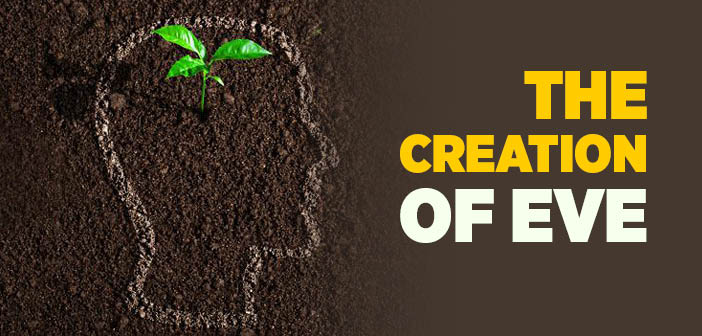Who is the first muder on earth? Who was the first to kill on earth?
After reuniting, Adam and Eve (as) settled in the area where the city of Mecca now stands. Mecca is therefore also known as Ummu’l-Qura, the mother of all cities. In a relatively short amount of time, they had many children, mostly because Eve gave birth to multiple children in a single labor. Children born during the same labor were siblings and were forbidden from marrying one another. They could only marry those born to a separate labor.
Cain (Kabil) wanted to marry his sister. Abel (Habil) warned him that this was forbidden by the law and that he could only marry a girl born to a different labor. Cain would not hear any of it and insisted what he was trying to do was right. So, Abel made a proposal. They would both offer sacrifices to Allah to see which one of them was right.
At that time, people would offer sacrifices appropriate to their line of work and leave the sacrifice on a mountain top. They would wait for a certain period of time and check up on it. If the sacrifice was consumed by a fire sent down from the skies, it was accepted. Otherwise, it was not.
Abel was a shepherd by trade. He had a flock of sheep and chose his grandest, most well-fed ram as sacrifice. Cain was a farmer; and he set aside a bundle of his weakest sprouts of wheat to offer to Allah.
They waited a bit and set out on the mountain top to see what had become of their offerings. Abel’s ram was gone but Cain’s scrawny bunch of wheat sprouts was still there (Ibn Sad, 38: I, 36). He became enraged and killed Abel. The Qur’an recounts the incident:
“And recite to them the story of Adam’s two sons, when they both offered a sacrifice. And it was accepted from one of them but was not accepted from the other. The latter said, ‘I will surely kill you.’ The former said, ‘Certainly, Allah only accepts from the righteous. If you should raise your hand against me to kill me – I shall not raise my hand against you to kill you. I fear Allah, the Lord of the worlds. And I want you to shoulder my sin and your sin so you will be among the companions of the Fire.[1] And that is the recompense of wrongdoers. And his ego made him murder his brother, so he killed him and became among the losers. Then Allah sent a crow searching in the ground to show him how to hide the disgrace of his brother. He said, ‘Woe to me! Am I more helpless than a crow that I did not know how to hide my brother’s body?’ And he became of the regretful” (Al-Ma’idah, 5: 27-31)
This is a story that compares a mind enlightened by the light of revelation with a mind fettered by the clutches of the ego. The mind has value and a place within revelation. A mind that accepts revelation as its guide arrives at wisdom. However, a mind that rejects revelation becomes exposed to the perils of the ego. The mind is a knife that can be used for many purposes. You can slice bread with it or stab someone to death. Cain’s mind took at a stance against revelation; and it took him off the road and laid waste to his afterlife.
For people deprived of piety and sincerity, the mind poses a danger not only to themselves but also to others. As the story of Abel and Cain shows, it can even lure someone into murdering his own brother. However, as is evident in the case of Abel, a mind led by revelation shrouds the person in a fear of Allah, where one offers good advice even to those out to get them.
People gripped by the disease of jealousy are blind to what they have been blessed with and constantly covet what others have. Jealousy can make a person do the unthinkable. It makes the person wage an inner war against the will of Allah. However, it is a lose-lose situation that ends up bringing the person shame and an eternal remorse, as well as taking him to a fierce punishment that awaits. Again, the cure for this illness is to train and cleanse the ego that relentlessly commands evil (nafsu’l-ammarah) and turn it into a soul that is happy with whatever Allah has to give (nafsu’l-mutmainnah).
Abel and Cain have opposite personalities, similar to the contrast between an angel and the devil. Cain devilishly tries to point the finger at the other, whereas Abel conducts himself like an angel, showing no fear despite being on the verge of losing his life. Cain insists on his mistake like the devil, while Abel turns to Allah.
The Qur’an goes on to stress how grave a sin it is to murder someone for no reason, and the how great it is to save a person’s life:
“Because of that, We decreed upon the Children of Israel that whoever kills a soul unless in return for another or for corruption in the land, it is as if he had slain mankind entirely. Whoever saves one soul, it is as if he had saved mankind entirely.” (Al-Ma’idah, 5: 32)
On the first murder -and fratricide- to take place in the history of humankind, the Prophet (saw) has the following words:
“Adam’s son is given a portion of blame for every single innocent soul to be murdered on earth…for it was him who blazed the trail”. (Al-Bukhari, Anbiya, 1; Muslim, Qasamah, 27)
The Messenger of Allah (saw) also says:
“A person who breaks new ground in good action receives a reward for himself, as well as a share of the rewards of others who follow his trail. It does not reduce their rewards in any way. However, a person who breaks ground in bad action incurs a sin for himself, as well as a share of the sins of others who follow his trail. It does not reduce their sins in any way”.
That shows that neither good nor bad actions necessarily end where they begin.
Ghazzali offers some evocative words in his Ihya:
“Fortunate is he whose sins die with him. Woe to the unfortunate soul whose sins live on for hundreds of years after his death.”
The Prophet (saw) has further said:
“There will come a time when there will be so many tribulations that a person seated will be better than the person who walks; and the person walking will be better than the person who runs.”
When Sad ibn Abi Waqqas (ra) asked, “What should I do, Messenger of Allah, is someone breaks into my house and tries to kill me?” the Prophet (saw) advised:
“…then be like Abel.” (Al-Tirmidhi, Fitan, 29/2194)
Islam orders the protection of five things: life, reason, religion, offspring and property. A person must do whatever is necessary to protect these things when they come under attack. However, while doing so, he must stick to the path of Islamic law. Yet, if a person finds himself in a situation where there is no other option than to either be the aggressor or the victim, then as the Noble Prophet (saw) advises, he must prefer to be the latter.
After Abel’s death, Eve gave birth to Seth (as),[2] whose name means a ‘blessing from Allah’. Seth (as) is one of those prophets not mentioned in the Qur’an. He received a 50-page revelation from Allah. On his deathbed, Adam (as) called Seth (as) to his side and taught him about the hours of day and night and the types of worship appropriate to each time. He also told him about the coming of the Great Flood.
Adam (as) passed away on a Friday. Angels descended to wash his corpse, wrap him in a shroud and bury him. Some sources say he lived a 1,000 years. Others suggest he passed away at the age of 930.
[1]. There are two issues to consider here. First is the question as to how a murderer can shoulder the sins of his victim, when the Quran says, وَلَا تَزِرُ وَازِرَةٌ وِزْرَ أُخْرَى “…and no-one shall bear another’s burden” (Al-Isra, 17: 15). This has been explained in a number of ways. A hadith says, “When two people hurl insults at one another, the person who started it takes the sin, unless the other person oversteps the boundaries” (Muslim, Birr, 69). In other words, as long as the victim does not go overboard in his insults, the instigator incurs both his sins for having started it and the sins of the other. When Abel says ‘my sin’, he is talking about the sin he would have incurred had he retaliated against Cain for trying to kill him. Take a case where one person strikes another with an intent to kill, the other fights back and they both wind up dead. The aggressor shoulders two counts of murder, while the defender one count. But if the defender refrains from striking back, he can avoid the sin of this single count of murder altogether. But the aggressor still shoulders two counts of murder and a double sin – one for killing an innocent person and two for starting something that led to his own death. Another interpretation is that when Abel says ‘my sin’, he may also be referring to the sin Cain is about to commit by murdering him; and when he says’ ‘your sin’, all the sins Cain has accumulated over a lifetime without repenting.
Secondly, just as it is wrong to wish for something bad to happen to oneself, it is equally wrong to wish bad for another person. So, why would a good man like Abel want Cain to commit a sin? There are two possible answers. One is Abel’s words are not meant literally. He did not want Cain to murder him. Much to the contrary, he wanted Cain to come to his senses and change his mind and chose those words only for effect – like egging on someone ‘to do something’, hoping he will back off. The other explanation is that while it is impermissible to want another person to commit a sin, it is permissible to wish for sinners to be punished. So understood, Abel would have meant, ‘I wish for neither you nor I to commit a sin but if you insist on going ahead, I would wish from God to duly punish you.’ But out of these two possible explanations, the first sound more reasonable. (Elmalili, III, 1654).
[2]. Seth (as) is also known as Shis.
Source: The History of Prophets in Light of The Qur’an, THE CHAIN OF PROPHETS, Osman Nuri TOPBAŞ, Erkam Publications





